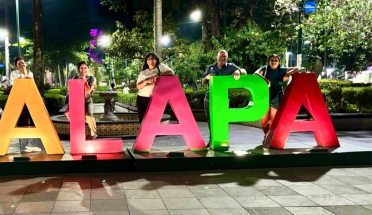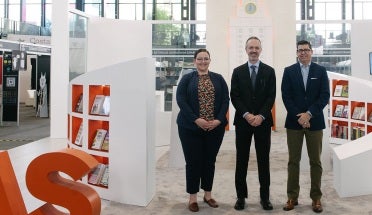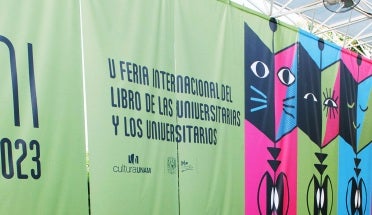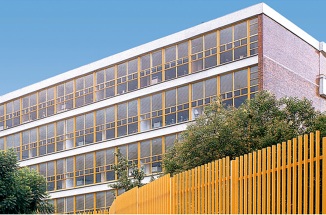
UT Engineering Alumnus Bridges Universities in Mexico, U.S.
- Aug 1, 2023
- Global Alumni Relations
- by Ellen Stader
“If we want to prosper together, and we want to really make a difference to our countries, our societies, we have to work together.”
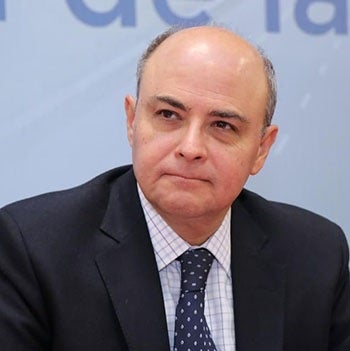
When Sergio Manuel Alcocer Martínez de Castro was pursuing his bachelor’s degree in civil engineering at the Universidad Nacional Autónoma de México (UNAM), international education and public policy didn’t enter his mind, nor did structural safety. He assumed he would graduate and become a hydraulic engineer.
“And then the earthquake came,” he said.
In September 1985, an 8.1-magnitude earthquake caused catastrophic destruction in Mexico City and surrounding regions. More than 400 buildings within the city collapsed, and thousands more were damaged.
Alcocer’s structural engineering professors embedded themselves in studying the effects of the quake to devise safety improvements. Their commitment — and the devastation around him — convinced Alcocer to make a change. He switched his focus to structural engineering and would dedicate the next several years to studying seismic safety.
“I realized that I would be able to participate and actually make a change if I were involved in structures rather than hydraulics,” he said. “So yes, the earthquake changed my professional life.”
Another change precipitated by the quake: Alcocer was offered the opportunity to study at The University of Texas at Austin. In response to the earthquake, the National Science Foundation and the Mexican Council of Science and Technology formed a program to facilitate common research among Mexican and American researchers.
And so, Alcocer said, “Because of the earthquake, I had the chance to go to UT.”
Building Bridges to a Better Life
Alcocer obtained his Ph.D. at UT Austin's Cockrell School of Engineering in 1991, then went on to build a career spanning the fields of engineering, public policy and international education. The uniting factor, he explained, is an understanding that although countries are shaped by different elements, they face the same essential challenges and hold similar goals for their citizens’ quality of life.
“When you talk to professors and students here — or, really, any people — you hear, ‘We want a better life; we want a sustainable and just system,’ ” Alcocer said. “It’s not different, what you want in the States and what we want in Mexico. We could achieve it working together.”
Alcocer's efforts have borne out this collaborative perspective, whether in his position as director of UNAM’s Institute of Engineering, his advisory board service for UT Austin’s Teresa Lozano Long Institute of Latin American Studies (LLILAS), or his many positions in Mexico’s federal government.
After earning his doctorate, Alcocer returned to UNAM and served as head of structural and geotechnical engineering, then as director of research for the National Center for Disaster Prevention, which is headquartered at the university. He became director of the Institute of Engineering, UNAM’s provost, and finally, its coordinator for innovation and development.
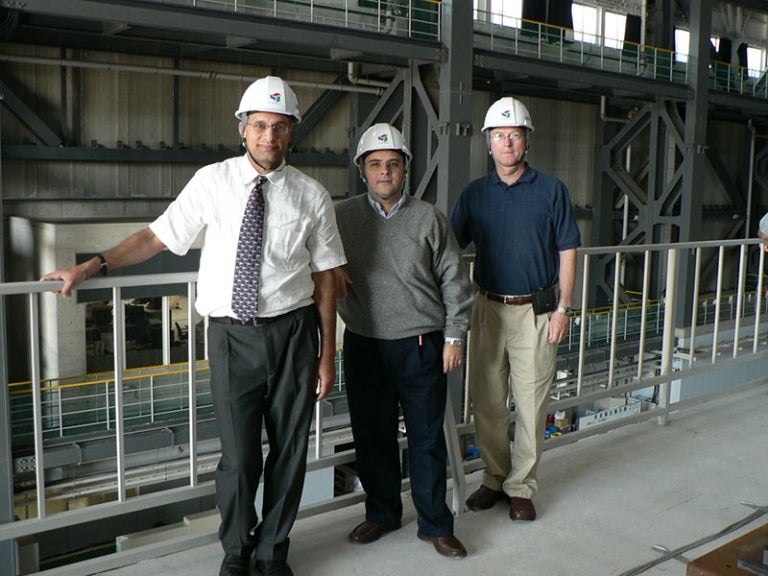
Alcocer’s career required the study of buildings and the ways they react to seismic forces, always in pursuit of stronger processes and safer structures. What he didn’t expect was the way his work would branch out and lead him to common ground with peers from other countries, finding opportunities to learn and apply shared knowledge for the greater good.
Moving from Design to Reality
As Alcocer distinguished himself in seismic safety, governmental organizations began consulting him on Mexico’s structural issues. He transitioned into public service, which took him from designing solutions to making official recommendations for implementing them on a national scale.
“When I was studying engineering, I never thought I would be involved in public policy,” said Alcocer. “But I developed a plan for disaster prevention, which became part of the National Development Plan of President Fox. And that opened my eyes to why public policy was so important: to move from engineering results to actual implementation.”
In this regard, Alcocer considers the development and implementation of robust yet easy-to-use building codes and construction standards as a prime example of the way that advanced knowledge can be transferred via engineering practitioners to society at large.
In 2011, Alcocer was appointed by the Mexican government as the undersecretary for energy planning and technology development within the Ministry of Energy, where he engaged universities, businesses and technical societies in developing innovations for wind and solar energy.
“I think, as engineers, we have to remember that we have a social commitment,” said Alcocer. “And public policy is a way to transfer that knowledge to society. That's the best way our societies will value research and science and technology.”
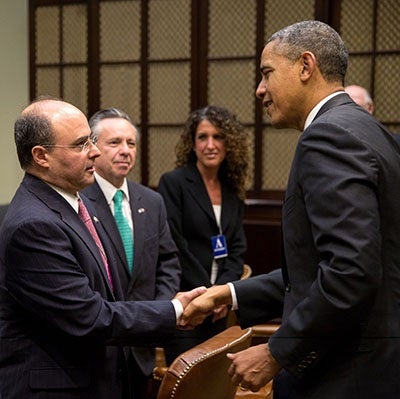
Alcocer’s focus shifted again in 2013, when he began serving as undersecretary for North American Affairs in the Ministry of Foreign Relations, advancing Mexico’s presence in the international arena through trade, labor, investment, infrastructure, and educational and cultural exchanges.
In this position, “I had the privilege of working with both President Obama and President Peña Nieto,” said Alcocer. “International relations based on education, on science and technology, was important for both countries. Both presidents ... took that as one of the strategic topics for their own presidencies and the work they did between them.”
Advocating for International Education
As a successful example of the benefits of learning abroad, Alcocer found government service an exemplary position from which he could advocate for global education.
“Since I had studied at UT, it was obvious that I should partner with other universities around the world,” said Alcocer. “So, when I was named provost of UNAM, one of the things I brought with me was a strategy to create a more robust engagement with UT and the world.”
Later, as undersecretary for North America, Alcocer sent students to U.S. universities for the summer to learn English. Each time students came back, he said, they returned as different people.
“They all wanted to go back to the States because, they told us, ‘We want to learn more. [In the U.S.] they have great libraries. We know we can bring that knowledge back to our communities to improve the quality of life.’ ”
“My role has been, in many cases, to be a bridge between Mexican and American universities.”
With this in mind, he took a position on the advisory board of the Teresa Lozano Long Institute of Latin American Studies, known as LLILAS. The institute’s public engagement programs integrate more than 30 departments across the UT Austin campus, and its libraries house one of the world's most extensive collections for research in Latin American studies and languages.
Alcocer sums up his role with LLILAS by saying, “I provide ideas for taking advantage of the great repository that LLILAS has of Latin American culture at large, in order for these to be better appreciated and used in the States and in Latin America, and to create some kind of bridge between our communities.”
Most recently, Alcocer was invited to teach as a part-time professor at UT San Antonio, where his main objective is connecting UTSA and its students with peer institutions and opportunities in Mexico.
FILUNI: Collaborating Across Borders
Alcocer’s next bridge-building site is at La Feria Internacional del Libro de las Universitarias y los Universitarios (FILUNI), the international university book fair and conference taking place August 29–September 3, 2023, on the UNAM campus. Organizers welcomed approximately 34,000 attendees from numerous countries in 2022 and expect even more this year.
In response to UT Austin’s invitation to be the first U.S. university guest of honor at FILUNI, an unprecedented delegation of more than 130 faculty, researchers, performers, staff, campus leaders and alumni will travel to Mexico City, representing 20 of the university’s colleges, schools and units.
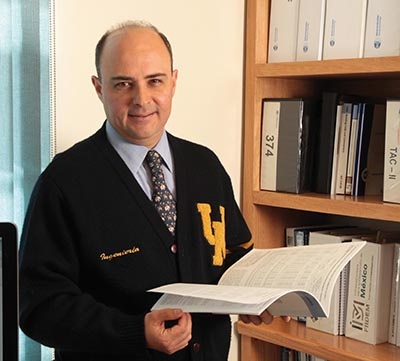
Alcocer helped shape FILUNI’s programming around seismic engineering, and he will facilitate one of the more than 50 events presented by Longhorns. His session covers one of Mexico’s most pressing topics in a panel discussion titled “Earthquakes: The Relevance of Science, Engineering and Architecture for Attaining Resilient Communities.” Panelists include architecture, engineering and geophysics professors from UNAM, UT Austin, and other universities in Mexico.
Including the seismic session, the overall conference programming centers on the themes outlined in UT Austin’s 10-Year Strategic Plan, providing an engaging platform for faculty researchers and scholars to explore topics and initiate projects with peers and institutions across borders.
"The idea of this panel is to talk about where we are in earthquake engineering in Mexico and the U.S., and what can be done in the future,” said Alcocer. "We will talk about seismic engineering and also showcase the interaction between UT and UNAM, to open opportunities for broader cooperation in the future.”
“Our universities are uniquely well positioned to make significant change through educating people who eventually will implement public policy. We need to bring our societies much closer together.”
As always, Alcocer views the prospects for greater international understanding through the lens of academic collaboration, convinced that international education is an imperative ingredient for improving and expanding U.S.-Mexico relations.
“I’d like to reiterate the importance of working together as two countries,” he said, “and I think our universities are uniquely well positioned to make significant change through educating people who eventually will implement public policy in that direction. We need to bring our societies much closer together.”
When asked about his goals both for FILUNI and future work, Alcocer summed up his priorities succinctly.
“My main focus is: Let's work together,” he said. “If we want to prosper together, and we want to really make a difference to our countries, our societies, we have to work together.”

